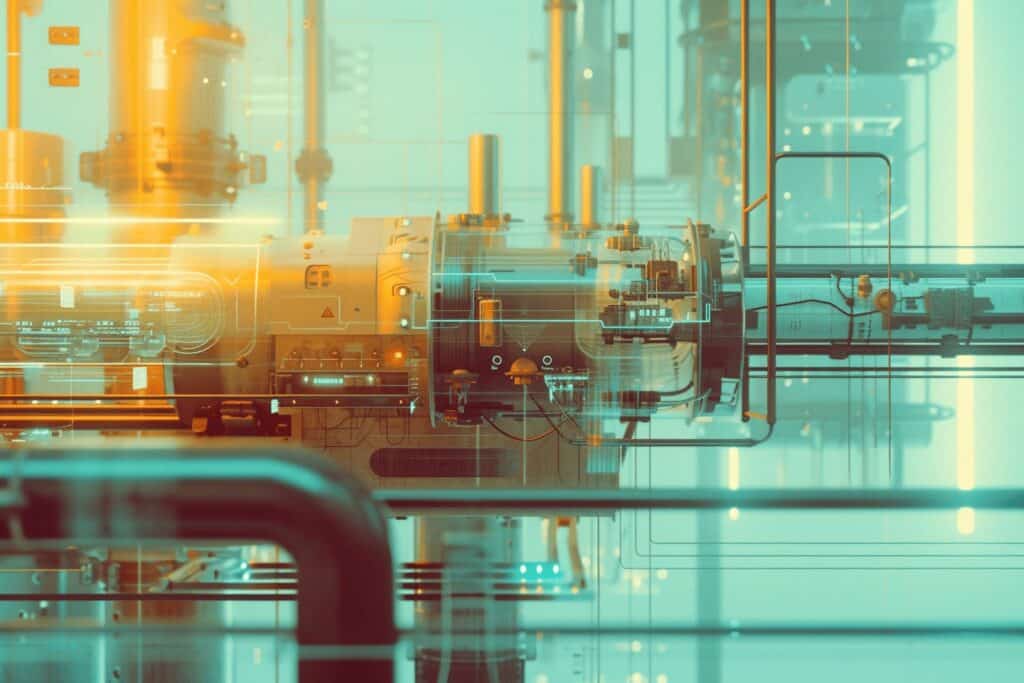Introduction
Picture this: you’re chilling on a Sunday afternoon, scrolling through your social media feed, and you come across an ad so perfectly tailored to your interests that you can’t help but click. Fast forward a few years, and this precision marketing becomes not just common but expected, thanks to the magic of AI and emerging technologies. Sounds like a scene from a sci-fi movie, right? Well, the future is now, and it’s reshaping the marketing landscape in ways we’re only beginning to comprehend.
In this article, we’re diving headfirst into the not-so-distant future of marketing, a world where AI and emerging technologies are not just tools but core components of innovative strategies. We’ll explore how these advancements promise to redefine engagement, personalization, and efficiency, transforming challenges into opportunities. From the intricacies of AI-integrated lead generation to the seamless automation of marketing workflows, we’re unpacking the game-changing potential of these technologies. Through exploring key aspects such as the transition from conventional methods AI-powered marketing automation, the integration of sophisticated AI in content creation, and the unprecedented efficiency it brings to scale, this article promises fresh insights into the profound impact of AI and emerging technologies on your business’s marketing future.
Stay with us as we break down how these innovations are not just changing the game but revolutionizing the entire playbook.

AI and Emerging Technologies: Sparking a Marketing Revolution
In the grand tapestry of business, few threads are as vibrant and rapidly evolving as marketing. Just a decade ago, the landscape was vastly different—billboards, TV commercials, and print ads reigned supreme, and social media was just beginning to show its prowess. Fast forward to today, and the digital arena has exploded into a complex ecosystem of platforms and strategies, driven by an insatiable demand for more personal, engaging, and efficient marketing.
Enter AI and emerging technologies—the catalysts sparking a marketing evolution. The burgeon of AI, with its ability to analyze enormous sets of data, predict trends, and automate tasks, is revolutionizing how businesses interact with their customers. It’s not just about reaching a wider audience but connecting with individuals on a deeper level, creating experiences that are not just seen or heard but felt.
A striking example of this transformation is the case of a small artisan coffee shop that leveraged AI to revitalize its marketing strategy. Facing stiff competition from big coffee chains, the shop began using an AI-driven marketing platform to analyze customer behavior and preferences. It wasn’t long before they saw results. By implementing personalized marketing campaigns based on AI insights, they saw a 25% increase in customer engagement and a 15% uptick in sales. This wasn’t magic; it was the power of AI and emerging technologies in action, demonstrating the potential to not just level the playing field but change the rules of the game altogether.
As we delve into the impact of AI and emerging technologies on marketing’s future, it’s crucial to understand this backdrop. The shift from traditional approaches to a digitally driven, AI-enhanced strategy isn’t just a trend—it’s a fundamental change in how businesses understand and interact with their customers. This evolution represents a sea of opportunities for those willing to embrace the change and navigate the emerging waters of modern marketing.

The Rise of Personalized Marketing through AI
The journey into the heart of modern marketing must begin with an exploration of personalized marketing—once a luxurious ambition, now an essential strategy, all thanks to AI and emerging technologies. The genesis of personalized marketing can be traced back to the days when shopkeepers knew their customers by name, curating products based on individual preferences. While this level of personal attention seemed lost in the era of mass marketing, AI has sparked its renaissance, enabling businesses to scale personalized experiences like never before.
The magic of AI in marketing lies in its incredible ability to sift through mountains of data to uncover insights about individual consumer behaviors, preferences, and engagement patterns. A study conducted by McKinsey highlights that businesses leveraging AI in their marketing strategies witness a significant uptick in customer engagement, with some sectors seeing up to 15% increases in revenue. This is no small feat, considering the ever-intensifying battle for consumers’ attention in the digital age.
One contemporary example of AI-driven personalized marketing at its best is the case of Spotify. The music streaming giant uses AI algorithms to analyze listening habits, creating personalized playlists for each of its millions of users. This level of personalization has not only endeared Spotify to its users but has also set a benchmark in consumer expectation for personalized experiences across industries.
Experts in the field, like Andrew Ng, co-founder of Google Brain and a pioneer in AI, have pointed out the transformative power of AI in marketing: “AI is the new electricity. Just as electricity transformed almost everything 100 years ago, today I have a hard time thinking of an industry that I don’t think AI will transform in the next several years.” This assertion rings particularly true in the realm of marketing, where AI’s capabilities are not just transforming strategies but also redefining the boundaries of what’s possible.
Moreover, the application of AI in personalized marketing is not confined to big corporations with hefty budgets. Tools like Chatbots, recommendation engines, and AI-powered CRM systems are becoming increasingly accessible, allowing small and medium-sized enterprises to offer personalized experiences to their customers. This democratization of technology marks a pivotal shift in the marketing landscape, leveling the playing field for businesses of all sizes.
We have to recognize that the transition towards AI-driven personalized marketing is not just a trend but a fundamental shift in how businesses approach consumer engagement. As we delve deeper into our exploration of AI and emerging technologies in marketing, the evolution from generic to laser-focused strategies underscores the immense potential of these technological advancements to revolutionize the industry.

Efficiency and Automation – The Unsung Heroes
While the spotlight often shines brightly on AI’s prowess in personalization, there’s another realm where AI and emerging technologies are making monumental strides—efficiency and automation. This vital aspect is sometimes overshadowed by the more glamorous facets of marketing technology, yet it is arguably the foundation upon which modern marketing’s future is being built.
Consider the evolution of marketing workflows. Traditionally, these processes were labor-intensive and fraught with redundancies. Marketers would spend countless hours on tasks that, while necessary, were repetitive and time-consuming—crafting individual emails, segmenting lists manually, designing campaign assets, and more. The advent of AI and marketing technology, however, has ushered in an era of unprecedented efficiency and automation.
Marketing automation platforms, powered by AI, can now manage complex workflows with minimal human intervention. These platforms can segment audiences with precision, trigger personalized communications based on real-time actions, and optimize campaigns on the fly. A study by Nucleus Research revealed that marketing automation drives a 14.5% increase in sales productivity and a 12.2% reduction in marketing overhead. These statistics underscore not just the efficiency but also the tangible benefits that automation brings to the marketing realm.
Yet, there’s a common misconception that automation and AI might dilute the personal touch in marketing or lead to a homogeneous customer experience. On the contrary, when leveraged thoughtfully, these technologies enable marketers to devote more time to strategy and creative endeavors—tasks that require a human touch. Automation does not replace the marketer; it amplifies their capabilities.
A compelling example of efficiency in action is the use of chatbots for customer service. These AI-driven assistants can handle a multitude of customer inquiries simultaneously, providing instant responses and freeing up human agents to tackle more complex issues. This not only improves operational efficiency but also enhances the customer experience through reduced wait times and round-the-clock service.
Furthermore, the integration of sophisticated AI with tools like Zapier or PabblyConnect ensures seamless interoperability between different platforms, automating workflows from content creation to publication and analysis. This not only streamlines operations but also ensures consistency across various marketing channels.
In essence, the efficiency and automation that AI and emerging technologies offer are not just about doing things faster but about transforming how marketing operates on a foundational level. As we continue to navigate this landscape, it’s vital to recognize and harness these unsung heroes of modern marketing. Their impact extends beyond mere convenience, laying the groundwork for a more strategic, creative, and ultimately, more human marketing approach.

The Emergent Synergy: AI’s Role in Crafting the Future of Marketing
After delving into personalization’s transformative power and the underappreciated might of efficiency and automation, it’s time to converge these threads into a forward-looking tapestry that envisions the future of marketing. This synthesis points towards a holistic integration where AI doesn’t just enhance aspects of marketing in isolation but fosters a dynamic ecosystem where creativity, strategy, and technology intersect and evolve together.
The biggest revelation perhaps lies in the realization that AI and emerging technologies are not the finale but the catalysts for an ongoing marketing revolution. They offer a glimpse into a future where personalization and efficiency are baseline expectations, not just competitive advantages. This leads to a marketing landscape that is more dynamic, responsive, and inclusive, fostering deeper connections between brands and their audiences.
Speculating further, we can envision a scenario where AI not only informs strategy but also predicts emerging consumer trends, creating a proactive rather than reactive marketing environment. Imagine AI systems that can identify nascent shifts in consumer behavior or emerging cultural trends and then automatically adjust marketing strategies to capitalize on these movements. This level of anticipatory marketing could redefine the relationship between brand and consumer, making it more symbiotic and mutually beneficial.
The convergence of AI-driven personalization, automation, and emerging immersive technologies suggests a marketing future that is infinitely more creative and impactful. This integration won’t just change how brands communicate but fundamentally alter what it means to engage with a brand. The potential for genuine, meaningful connections in a digital realm filled with noise is vast.
As we stand at the cusp of this new era in marketing, it’s evident that AI and emerging technologies are not merely tools but the architects of a new paradigm. Their role in shaping the future of marketing is indelible, driving us towards a realm where creativity, efficiency, and technology are not just harmonized but dynamically interwoven to create experiences that resonate on a deeper human level. The future of marketing, thus, lies not in choosing between human creativity and machine efficiency but in leveraging the best of both to create a marketing symphony that plays to the tune of an ever-evolving consumer landscape.

Personal Insights and Reflection
Reflecting on the journey through the transformative landscape of AI and emerging technologies in marketing, I’m reminded of a moment that significantly shaped my understanding of this evolution. A few years back, while experimenting with an early AI tool for content creation, I marveled at the technology’s potential and pondered its implications on the creative process. It was a rudimentary tool by today’s standards, but it sparked a realization: technology wasn’t just changing the way we execute tasks; it was redefining the very fabric of creativity and connection in marketing.
This journey of discovery has been both exhilarating and humbling, revealing the vast potential of AI to amplify human creativity rather than diminish it. It’s fascinating to consider that technology, often perceived as cold and impersonal, is at the heart of creating deeper human connections. This paradox lies at the crux of the modern marketing dilemma: How do we harness the immense power of AI and technology without losing the essence of human touch in our storytelling?
As marketers and creators, we stand at a unique intersection where the paths of human ingenuity and artificial intelligence converge. The future beckons us to not only embrace these tools but to infuse them with our creativity, empathy, and understanding of the human experience. The magic, therefore, lies not in the technology itself but in our ability to wield it in ways that enrich, engage, and elevate the human spirit.
Let this be an invitation to ponder, explore, and experiment with the limitless possibilities that AI and emerging technologies present. As we venture into this uncharted territory, we must anchor ourselves in the values that define us—creativity, connection, and curiosity. The journey ahead is not just about adapting to change but about shaping a future where technology and humanity dance in harmonious synergy, crafting marketing narratives that resonate deeply and authentically with the people they are intended to reach.

Conclusion
In navigating the intricate dance of AI marketing automation within the marketing realm, we’ve traversed the transformative landscapes of personalized marketing, efficiency and automation, and envisioned a future painted with the broad brushes of technology-enhanced creativity. This journey reveals not just the immense potentials but also the profound responsibilities we hold as marketers in shaping a future where technology amplifies human connection and creativity.
Rethinking marketing in the age of AI isn’t just a choice—it’s an imperative. As we stand on the precipice of this new era, we’re tasked with crafting narratives that resonate on a deeply human level, leveraging technology not as a crutch but as a canvas for our creativity. The question we must ask ourselves is not if we will adapt to this new world, but how we will shape it with the indelible mark of our humanity.
As we ponder the immense possibilities ahead, let’s consider: How will we use these tools to tell our stories, engage our audiences, and transform the landscape of marketing? The future is ours to write, and the pen is in our hands.
What are your thoughts on the future of marketing in the age of AI and emerging technologies? Share your perspectives in the comments below or join the conversation on social media. For those hungry for more insights and strategies, explore our related articles and resources. Together, let’s shape a future where technology and creativity converge to redefine marketing as we know it.




0 Comments